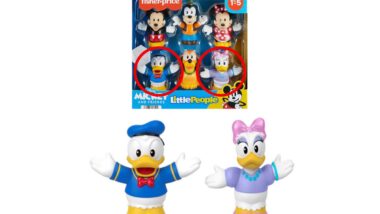Top Class Actions’s website and social media posts use affiliate links. If you make a purchase using such links, we may receive a commission, but it will not result in any additional charges to you. Please review our Affiliate Link Disclosure for more information.
UPDATE: On Dec. 3, 2020, Quebec Superior Court Justice Martin Castonguay denied the plaintiffs’ request for declaratory judgment against the Quebec government and group of ultra-Orthodox Hasidic schools, finding the issues they raised at trial had already been addressed through tightened regulations and agreements with school boards.
Justice Castonguay said he felt “profound sympathy” for the plaintiffs’ experiences and the challenges they faced both when they lived in the Tash community and when they left.
In his decision, he acknowledged that there are many issues with the Hasidic schools. However, he noted that many of these problems have been addressed through tightened regulation. Further, new agreements with school boards that allow ultra-Orthodox children to be educated at home under the supervision of local school districts have been successful, Justice Castonguay says.
The judge also points to new laws that were enacted in 2017 to allow the government to take action in situations in which a child receives inadequate education.
“The state gave itself the means so that the difficulties that previously existed no longer do,” the judge reportedly wrote.
Justice Castonguay says declaratory judgments like the one sought by plaintiffs should be used to resolve “real and current” problems and not to take a stand on controversial policies.
The plaintiffs have said they may appeal the judgment.
Two former Hasidic Jews are facing off against the Quebec government after filing a lawsuit alleging the government failed to ensure they received a proper education.
Plaintiffs Yohanan and Shifra Lowen filed the education lawsuit against the Quebec government about five years ago. The civil trial began Monday in Quebec Superior Court.
Plaintiffs Say They Received Inadequate Education
The Lowens both grew up in an ultra-Orthodox Hasidic community called Tash, which is located in Boisbriand, approximately 30 kilometers north of Montreal. They claim they received very little secular education from the private religious schools they attended within the community.
Boys in particular were reportedly taught little to nothing from the provincial curriculum. The majority of the boys’ education was focused on religion, according to the lawsuit. In contrast, the girls’ education included a balance between religion and a secular education.
Yohanan claims that he barely understood basic math skills including addition and subtraction, and that he was unable to read or write in English or French when he finished school at age 18. He could speak limited English and could not speak French.
His lack of adequate education rendered him unable to find work outside his community, the education lawsuit alleges. Yohanan’s experience with the community’s religious schools was reportedly far from unique. The “vast majority” of boys in Tash could not perform basic daily tasks such as reading a restaurant menu or counting change when making a purchase.
A youth protection official testified Monday that 280 of 320 boys who were assessed during visits to the community in 2014 and 2015 were flagged because of their poor English and math skills.
The Lowens are not seeking financial compensation from their lawsuit. Instead, they seek a declaratory judgment that would require Quebec to make sure students at private religious schools are taught the provincial curriculum.
“We’re not saying these people were ill-intentioned, but whatever strategy they had was a failure,” the Lowens’ attorney Bruce Johnston told the court Monday. “By tolerating illegal schools, did the government violate its own law?”
Quebec Has Tightened Rules to Improve Educational Access
Lawyers for the government are arguing that the situation has improved greatly since the Lowens, who are both in their early 40s, attended schools in the community.
The government of Quebec reportedly reached a compromise in 2017 that allowed religion to be taught at school and the provincial curriculum could be taught at home. Later, the rules were tightened to ensure students at religious schools were taught the same subject during the same year as their public school peers. They were also required to take part in mandatory provincial examinations.
School boards were recently abolished by the Coalition Avenir Québec government as part of an overhaul of the province’s educational system.
The Lowens’ trial will include testimony from the plaintiffs, representatives from the Education Ministry and from members of the Tash community. The trial is expected to last for two weeks.
What do you think of this education lawsuit? Tell us your thoughts in the comments below!
The Lowens are represented by Bruce Johnston and Clara Poissant-Lespérance of Trudel Johnston & Lespérance.
Read More Lawsuit & Settlement News:
- Dell Customer Files Class Action Lawsuit After an Alleged Tech Support Scam
- EXCLUSIVE: Coerced Sterilization of Indigenous Women | Alisa Lombard Exposes Canada’s ‘Colonial Hangover’
- Pandemic Business Interruption Insurance Canada Potential Lawsuit
- Long-Term Disability Lawyer | Insurance Claim Denial Help
ATTORNEY ADVERTISING
Top Class Actions is a Proud Member of the American Bar Association
LEGAL INFORMATION IS NOT LEGAL ADVICE
Top Class Actions Legal Statement
©2008 – 2024 Top Class Actions® LLC
Various Trademarks held by their respective owners
This website is not intended for viewing or usage by European Union citizens.



















One thought on Ex-Hasidic Couple Takes Quebec Government to Court Over Inadequate Education
Please add me